Biryani is a fragrant rice dish with origins in the Indian subcontinent, and different regions have their unique takes on it. Most biryani recipes here in the UK tend to be Indian-inspired. And that’s why I’ve decided to share my Bangladeshi biryani recipe.
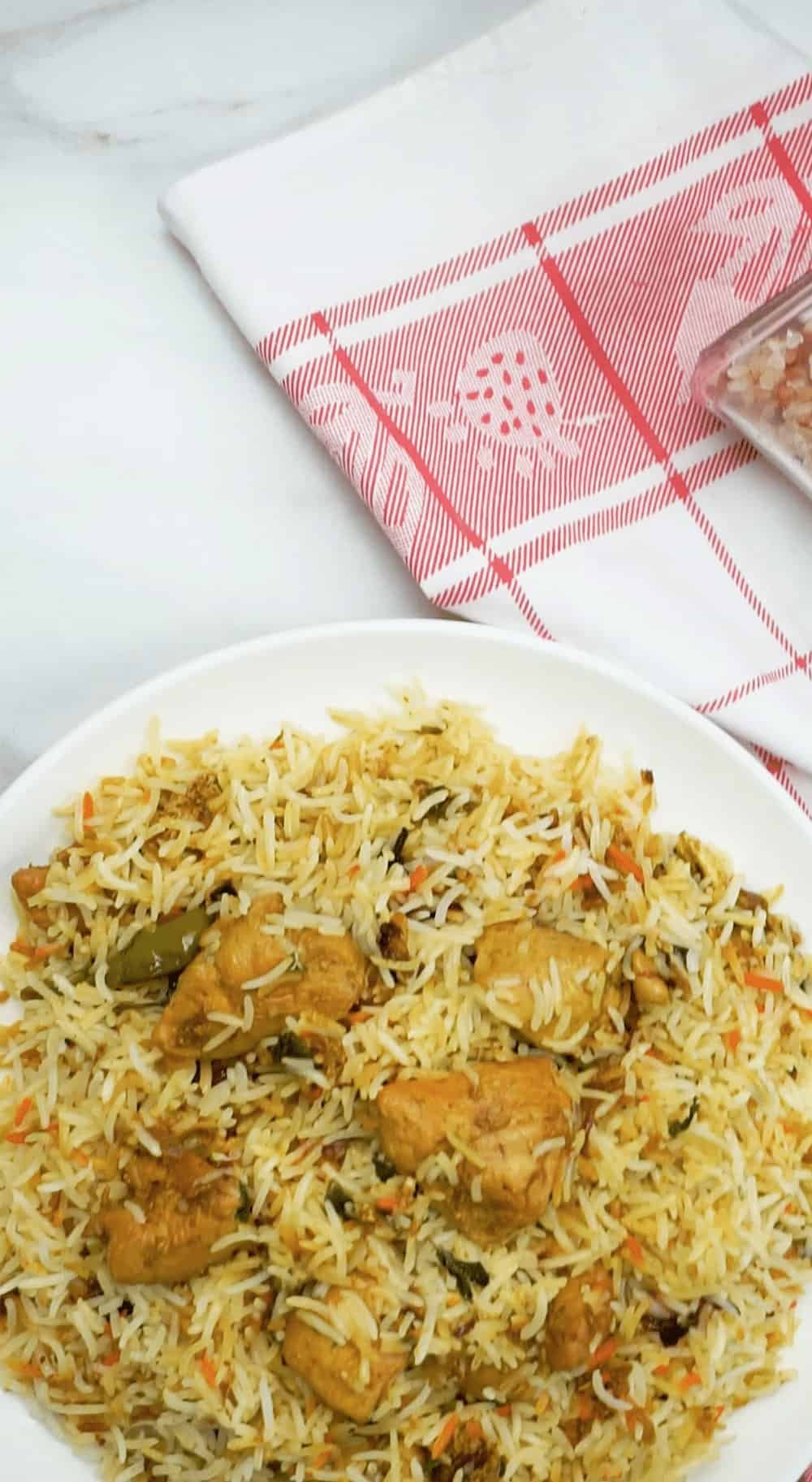
Ultimately, this is like any other biryani. It involves layering rice with meat and veg. But there are a few ways I have been inspired by Bangladeshi cuisine in this recipe.
Some Indian biryanis tend to be quite fiery. In comparison, I’ve always found Bangladeshi versions slightly milder and more fragrant. There tends to be more focus on the warmth of spices instead of the heat of chillies.
How to Make Bangladeshi Biryani
A detailed recipe with full quantities can be found in the recipe card at the bottom of this page.
Step 1: Give your rice a thorough rinse and clean until cold water runs clear. You can often skip this rinsing step if you’re serving rice on the side. But, with rice being the star of the show, it’s well worth making some effort.
Step 2: Cook the rice, as usual, but only until it is around 70% done. It should be slightly softened on the outside but have plenty of bite. Remember, you’re going to cook it for a further 30 minutes.
If you want to add extra flavour at this point, throw in some sprigs of fresh mint or coriander to the water.
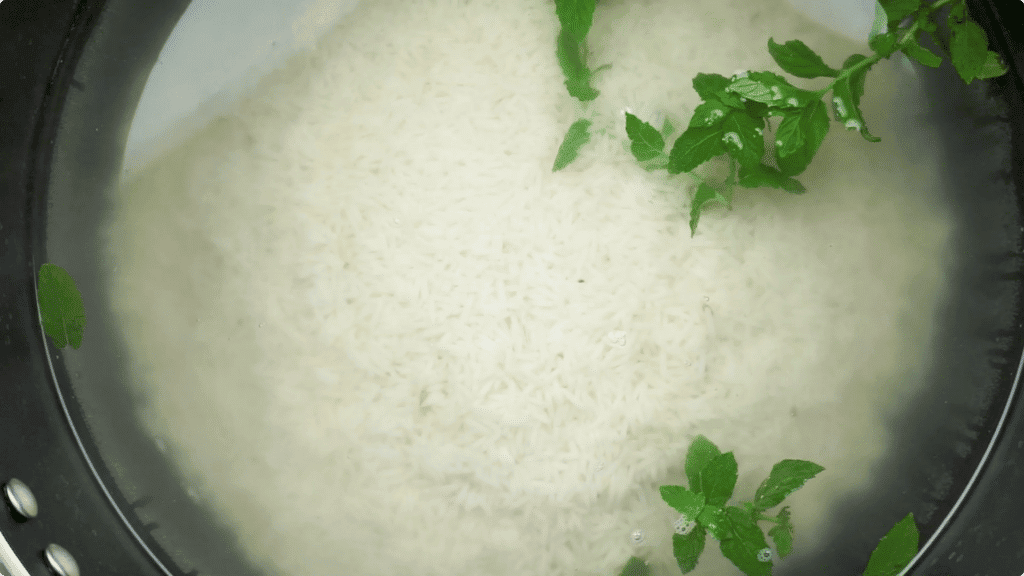
Step 3: In another large pot, heat the oil or ghee then fry the onion until softened. Remove half of the onions as you’ll need these for topping the biryani layer.
Add the ginger, garlic and green chillies and continue to fry for 2 to 3 minutes until everything is smelling delicious.
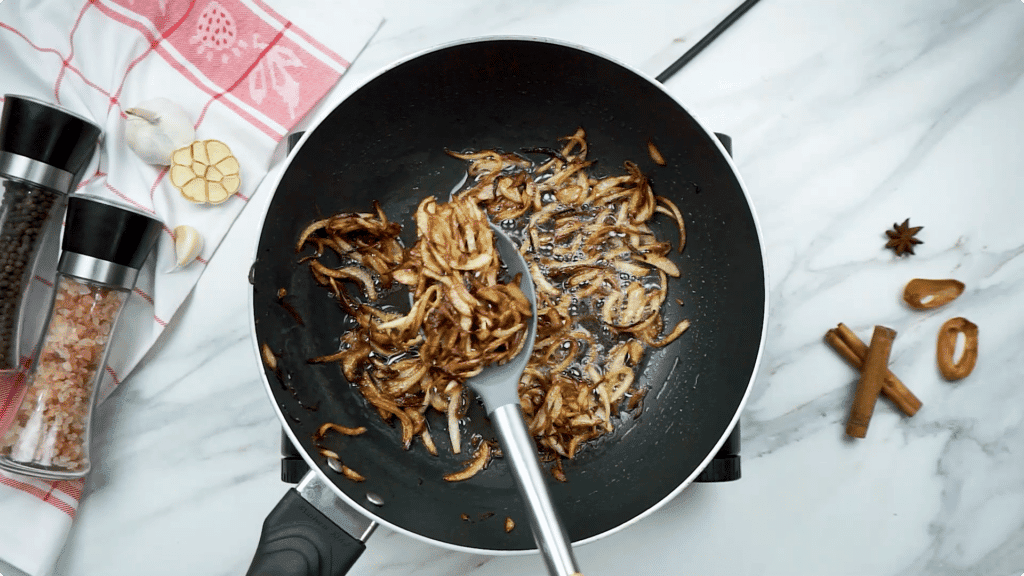
Step 4: Add your chosen meat – chicken or mutton are the best options here – and brown the pieces on all sides. You don’t need to fully cook the meat at this point. If things start to catch on the bottom, add a water splash to loosen everything up.

You can now add the yoghurt and spices to the pan and allow them to cook out. This will force the base for your biryani so don’t rush this step.
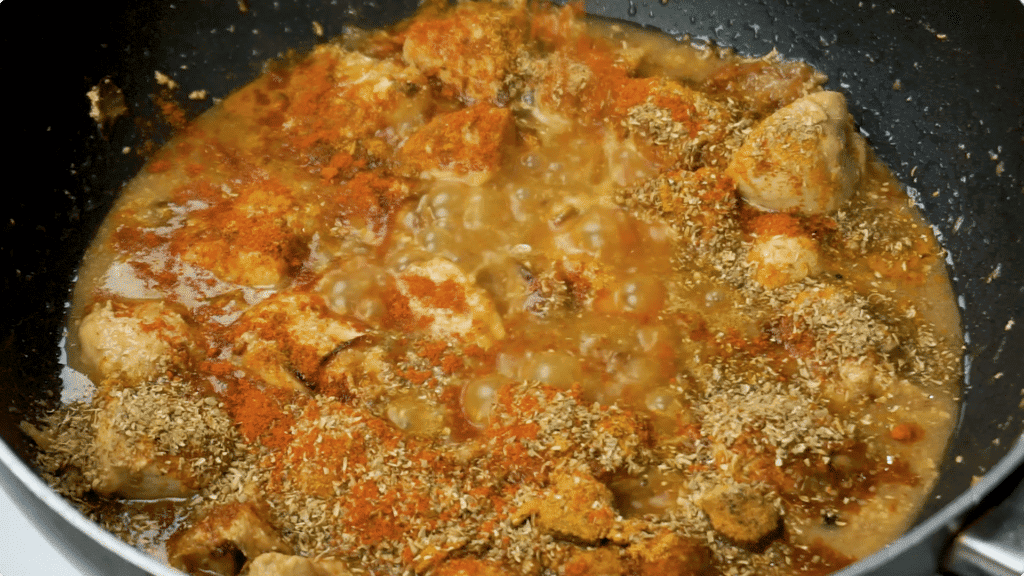
Step 5: Layer the semi-cooked rice over the top of the meat mixture, sprinkle over the herbs and reserved onions and then place a tight lid over the top.
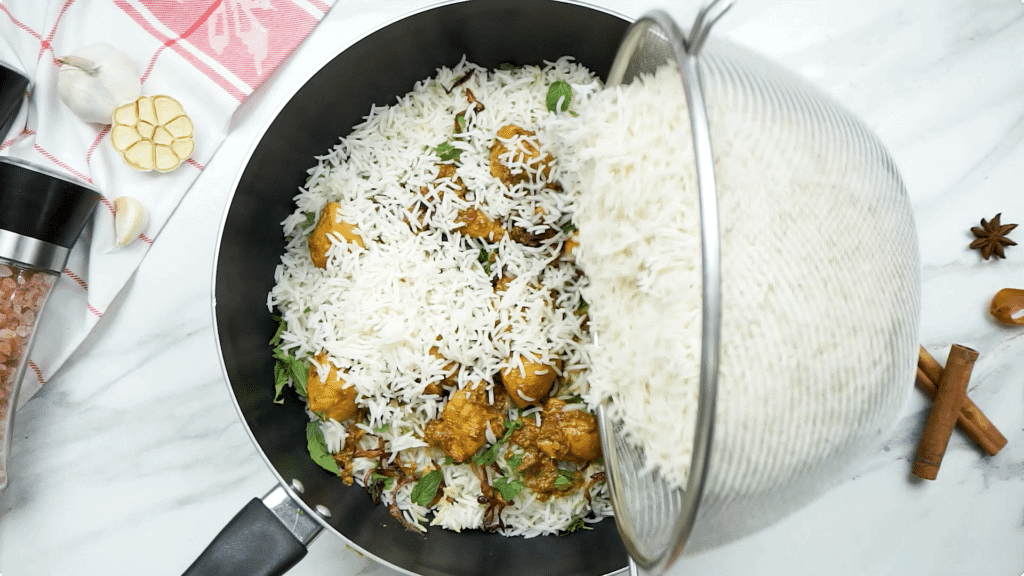
Place it over the lowest heat possible and cook for 20 to 30 minutes to let the spices infuse throughout and for the rice to cook. Turn the heat off and let the biryani sit for another 10 minutes or so before serving it up.
Why Is My Biryani Mushy?
The rice might have been overcooked during the initial boiling. Always parboil the rice so it’s 70-80% cooked before layering.
Why Is My Biryani Wet?
Wet biryani can be caused by watery yoghurt, meat releasing excess juices, or not sealing the pot properly. To fix a wet biryani, cook uncovered to evaporate excess moisture.
Tweaks
My Bangladeshi biryani recipe is delicious as it is. But there might be a few reasons why you want or need to tweak this recipe. Here are a few variations I love (they might not be traditional, but who cares):
- Go Vegan: There are two animal-based elements to this biryani. The meat and the yoghurt. Replace the meat with cauliflower, green beans and/or tofu and switch out the dairy yoghurt for coconut milk.
- Cook in Stock: To add instant flavour to the rice before you even assemble the biryani, cook it in stock instead of plain water.
- Add Lentils: To bulk this biryani out further without much added cost, mix in a tin of drained lentils to the rice before layer it up.
- Include Crunch: When you serve up the biryani, sprinkle over fried crispy onions and ginger sticks, crushed cashews and pistachios.
- Go Wholegrain: I love brown rice. It adds a subtle nutty flavour to rice dishes. So, swap out the white basmati rice for brown rice. Remember, it will need longer during the inital boil!
Storage
Whenever it comes to rice, I seem to always cook far too much – and you’re probably the same. Fortunately, biryani stores in the fridge and freezer really well:
Refrigerate: Allow the biryani to cool to room temperature, then place it in an airtight container. Store in the fridge for up to 3-4 days.
Freeze: Once cooled, immediately portion the biryani into freezer-safe containers or bags. Label with the date and freeze for up to 2 months.
Reheat: For refrigerated biryani, microwave with a sprinkle of water on medium power or reheat on a stove with some water. For frozen, thaw in the fridge overnight before reheating similarly.
Is It Safe To Reheat Biryani?
Yes, it is perfectly safe to reheat biryani as long as it is heated up fully and stored correctly in the first place. When reheating, ensure it reaches 74°C and avoid leaving it at room temperature for over two hours. You can read more about this on the NHS.

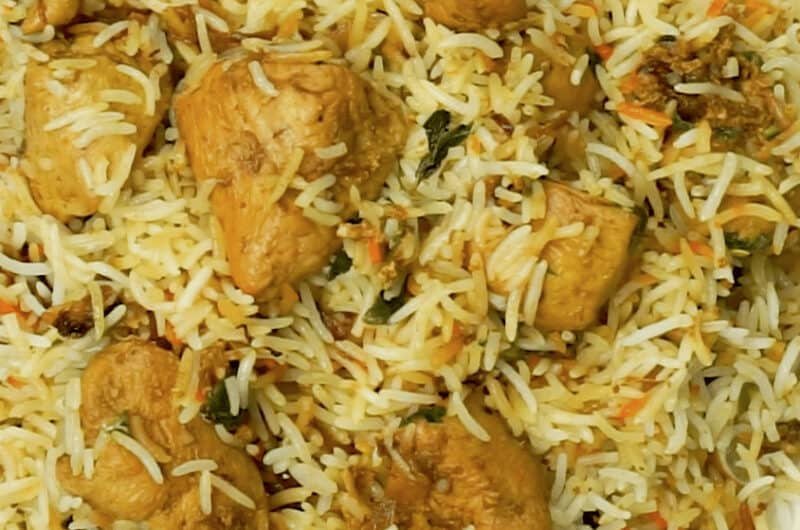
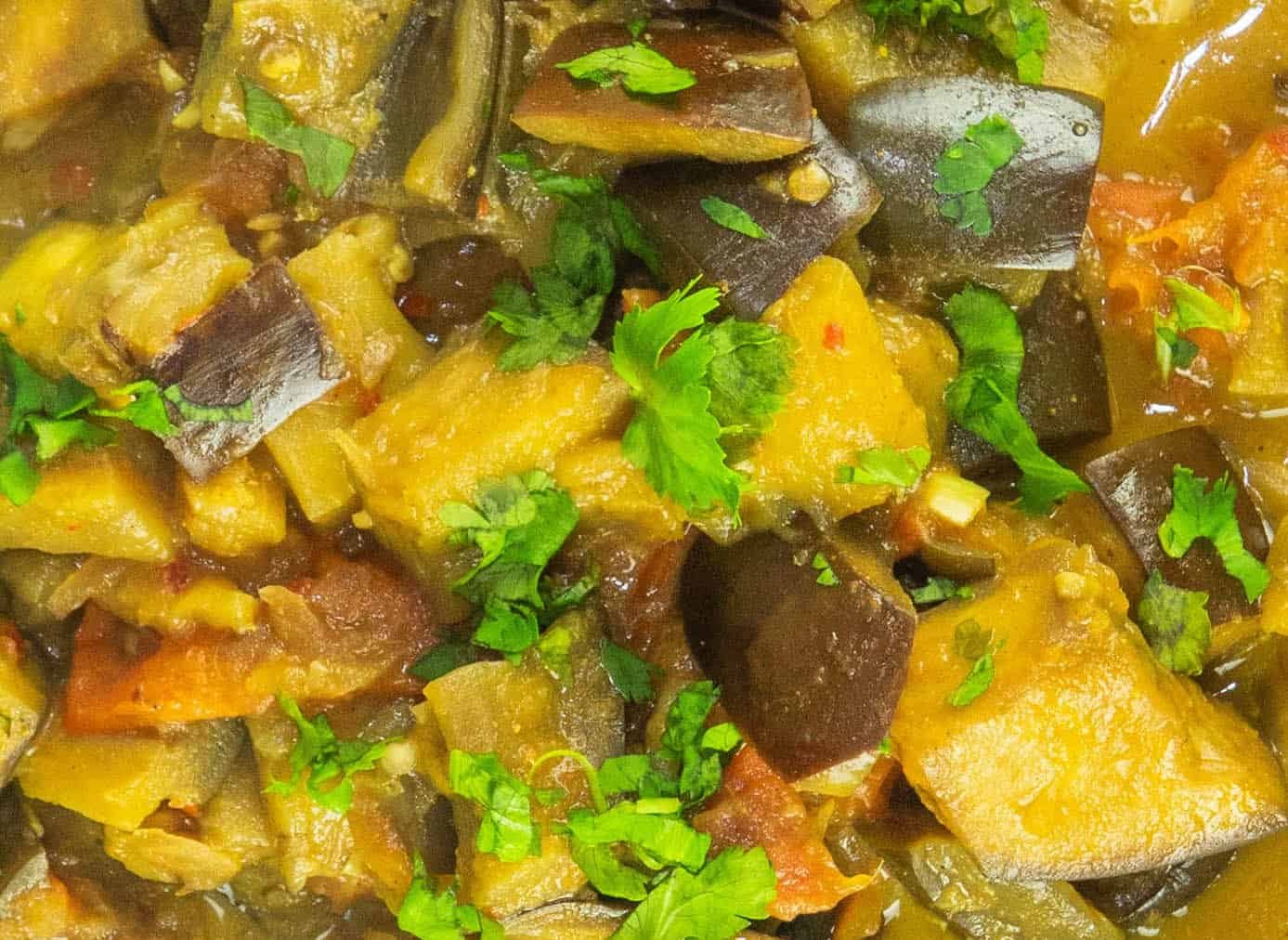

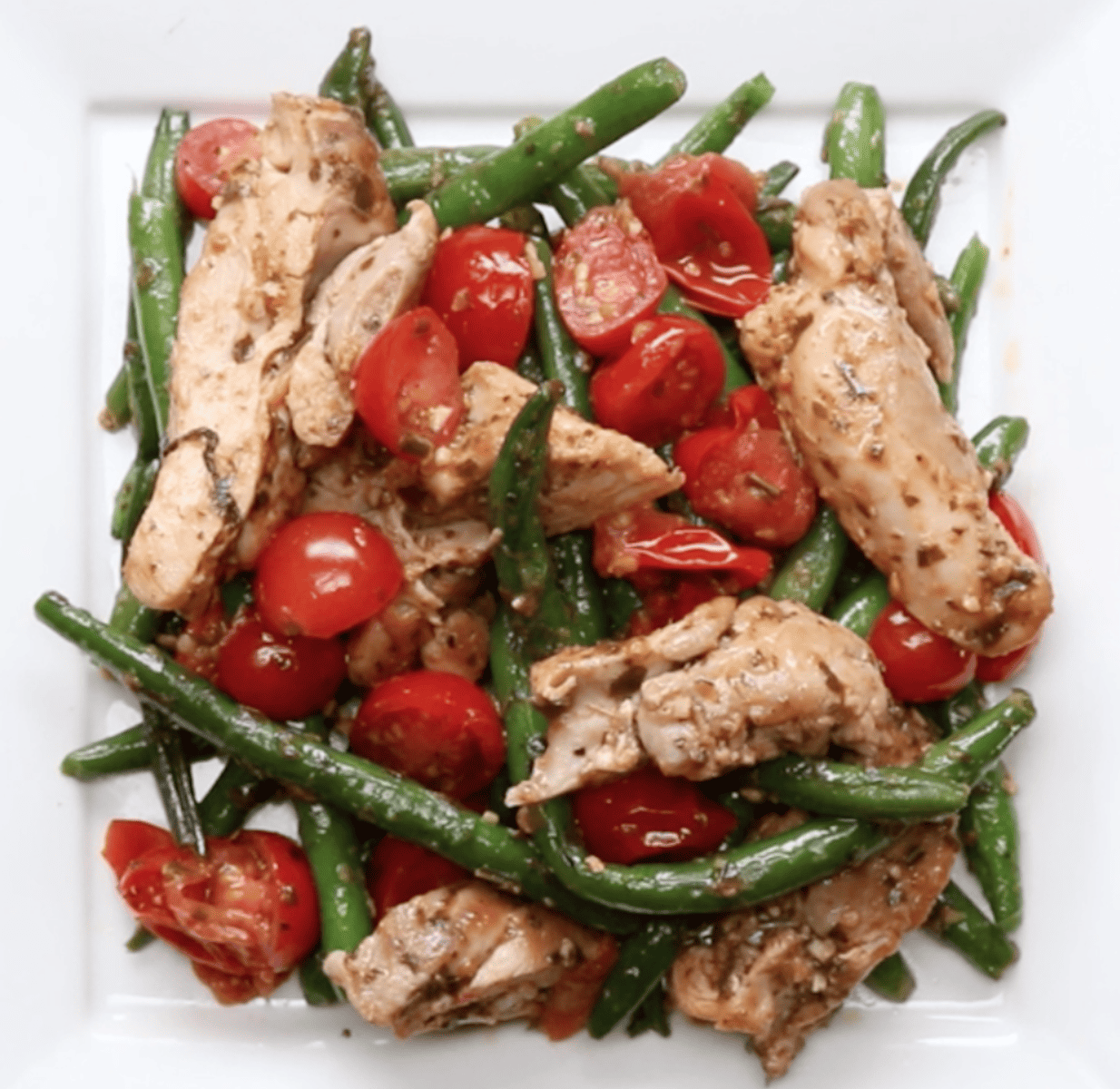
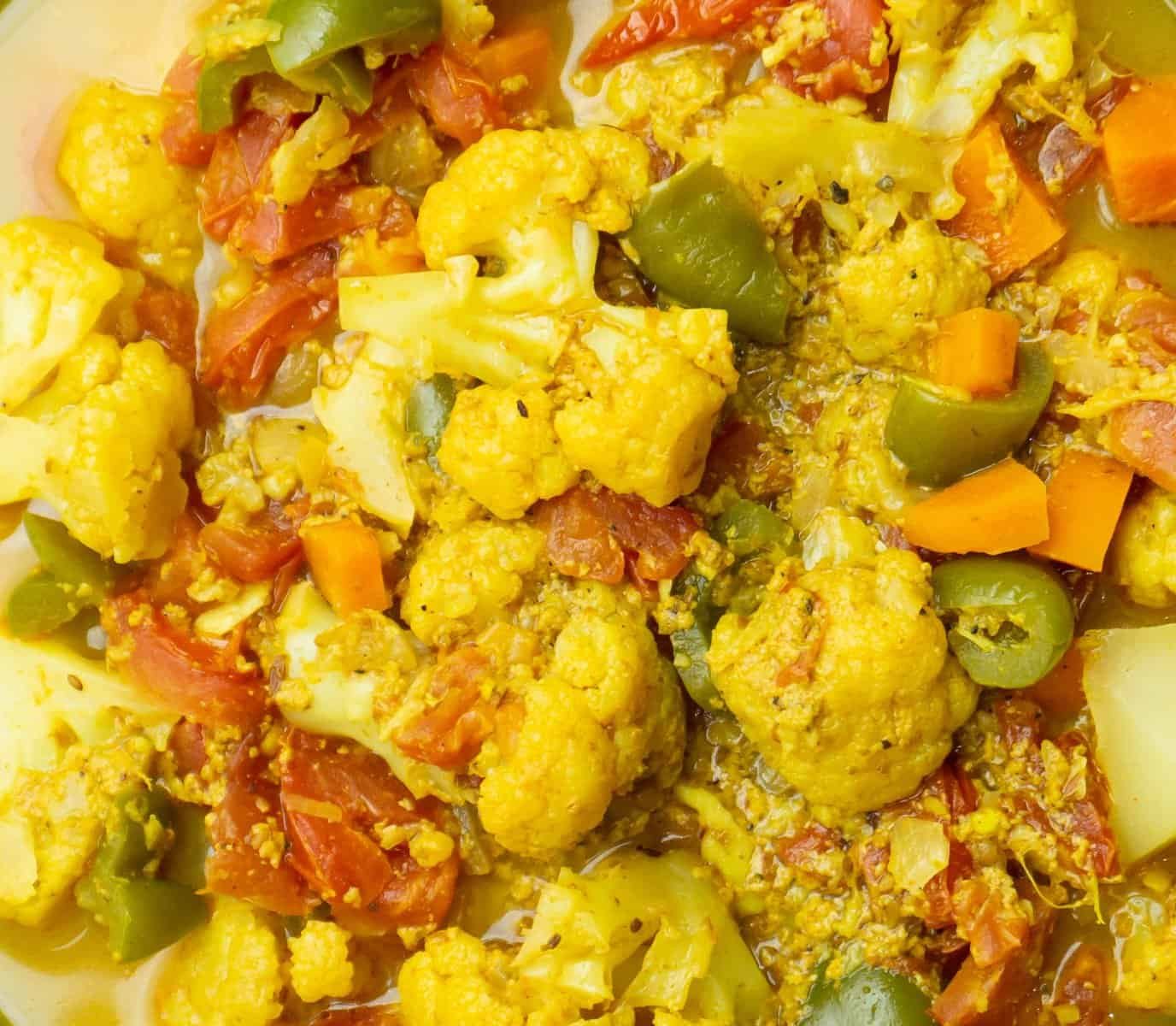
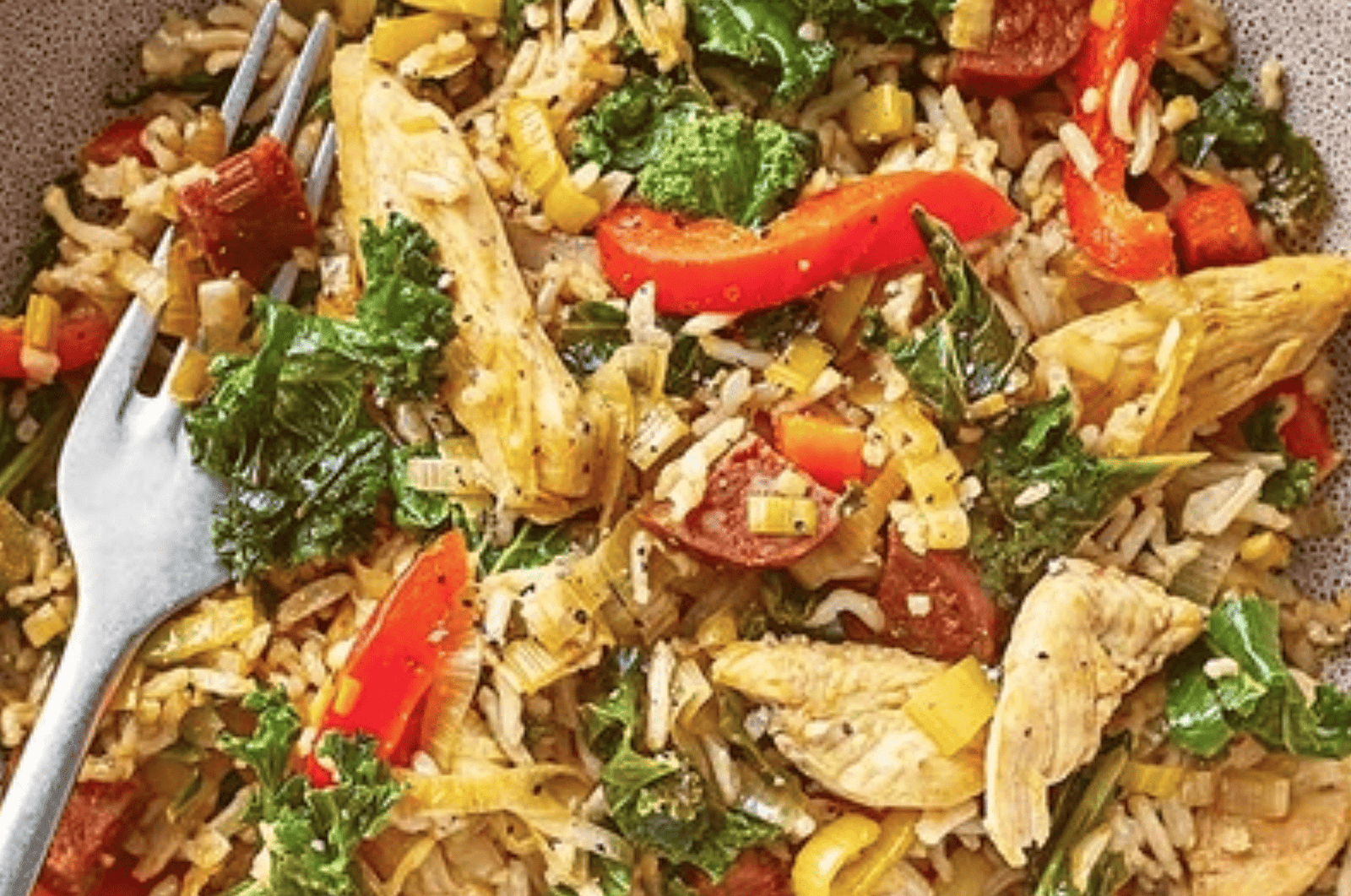



Amazing recipe and cooked well.